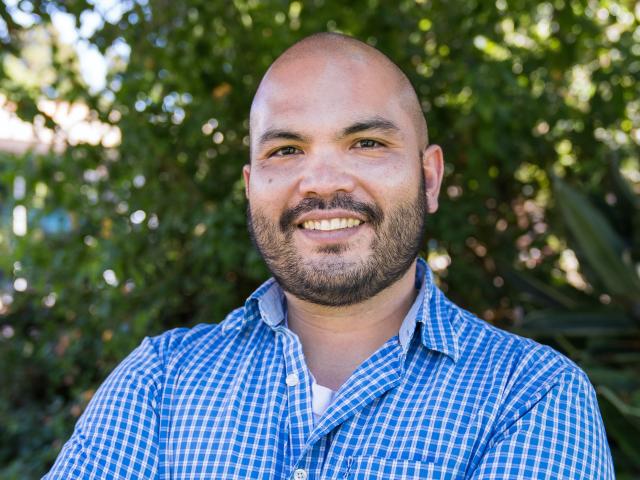CCS Computing Faculty Richert Wang Receives National Science Foundation (NSF) Grant to Tackle Inequity in Advanced Placement (AP) Computing Education
UC Santa Barbara and California State University (CSU) Chico collaboration aims to improve inclusivity in High School Computing

Across California, home of Silicon Valley, half of all high school students are Hispanic. Yet according to the 2022 State of Computer Science Education Report, only 22% of Advanced Placement (AP) Computer Science Exam takers are Hispanic. This data suggests a troubling trend: California's largest high school demographic population is not participating in the computing education pathway at an equivalent rate to their peers.
CCS Computing Faculty Richert Wang believes the challenge is rooted in representation and accessibility. On a broader level, only about 40% of high schools across the state offer AP Computer Science courses. Furthermore, the equity gap is income based with lower income school districts providing little to no computing education opportunities. This disparity––coupled with long waitlists for computer science courses at universities––creates barriers for students who come to college without any prior programming experience.
In pursuit of a more diverse and equitable future in computing education, Professor Wang has teamed up with California State University (CSU) Chico Faculty Kevin Buffardi in a groundbreaking collaboration supported by a National Science Foundation (NSF) Broadening Participation in Computing - Demonstration Project (NSF BPC-DP) grant.
Wang and Buffardi’s project, “Embedding Representation, Relevance, and Equity in a Personalized System of Instruction,” aims to improve inclusivity in the field of computer science by placing multimedia learning and Women/Hispanic perspectives at the center of high school instructional practices.
This multifaceted initiative has three core objectives: 1) creating a platform that exhibits diverse representation and unique perspectives of computing, 2) facilitating an equitable learning framework in K-12 computing education, and 3) improving self-efficacy and inclusion in computing.
An Innovative Digital Platform Featuring Marginalized Perspectives
At the heart of this project is a digital platform containing programming exercises and tutorials presented by representative university student role models. In alignment with the project’s target audience, Wang and Buffardi will prioritize marginalized identities. The idea is to provide relatable computer science content in order to increase the students' sense of belonging, as well as a tool to master programming topics at their own pace. To achieve this, Wang and Buffardi will mentor “near-peer” students to create content that encapsulates their culturally-relevant vantage points on computer science. This content will also be used to build more culturally representative curricula. Wang notes that he is most excited to learn from their experiences and incorporate their perspectives in his own courses.
While the platform will initially be offered to partnering schools, the project team plans to make the technology accessible to the general public.
“By providing this platform as an accessible free public resource, we are hoping to create a pathway where any student, regardless of what high school they attend, can have an opportunity to learn coding at their own pace, and relate with students currently studying computer science.”
–Richert Wang, CCS Computing Faculty
Wang hopes this will encourage more students from disadvantaged communities to apply to college as a computer science majors, thus making the computer science college admissions pipeline more diverse and inclusive.
Cultivating an Equitable Learning Framework in the Schools of Today and Tomorrow
To bridge the equity gap in current AP Computer Science (CS) education, this initiative will embed culturally responsive curriculum and competency-based practices into AP CS classes at partnering high schools, including local Dos Pueblos High School.
Dos Pueblos will be an early adopter of the project team’s specialized platform. According to Wang, the technology “Will enable high school instructors to supplement their own curriculum, monitor student progress on certain topics, and help provide insight on how to address students appropriately.”
Simultaneously, these practices will be incorporated into teacher professional development courses at CSU Chico, equipping future AP CS A teachers with inclusive pedagogy and strategies for their future classrooms.
CCS congratulates Professor Richert Wang and wishes his project success.
This article was featured in The Current on October 17, 2023 and in Noozhawk on November 12, 2023.